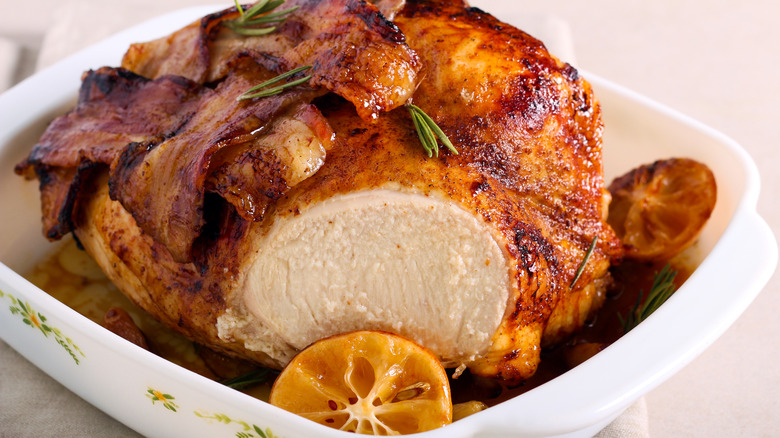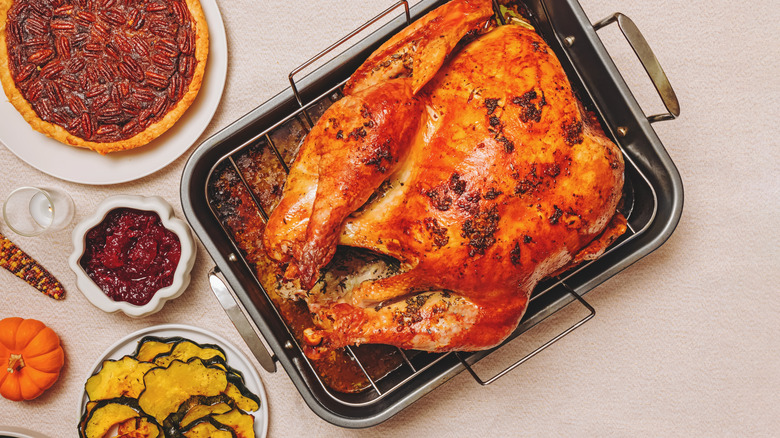Why You Shouldn't Rely On Bacon To Save A Dry Turkey
Whether you're in the market for a show-stopping centerpiece on a holiday dinner table, or are simply looking to elevate your family's Sunday night supper, you can count on roast turkey to be the ultimate crowd-pleaser. Given that it isn't bone-dry when you cut into it, that is. Unfortunately, it can be all too easy to end up with a turkey that tastes more dehydrated than decadent.
For that reason, it's common for folks to wrap their bird in bacon before popping it in the oven, not only in an attempt to lock in moisture, but also in the hopes of giving it more flavor. After all, those fatty strips of pork are full of it. Now, while there are some great ingredients you can use to upgrade your roast turkey, bacon actually isn't one of them — at least not in our book. For one thing, its cooking time is totally opposed to that of turkey.
As Tasting Table recipe developer Mary Fawzy explains, "In the oven, bacon cooks way quicker than turkey, resulting in overcooked, dry, and brittle strips." Furthermore, instead of helping the bird develop a golden skin that keeps any flavor locked inside, "the strips cover the skin and prevent it from browning and becoming crispy." Most of the time, covering turkey with bacon does little to make the meat juicy. Instead, it leaves you with a soggy-skinned bird and a whole lot of grease, not to mention a wasted batch of bacon.
Better-than-bacon alternatives for getting a moist turkey
Skinless turkey meat is quite lean, and a lower fat content causes it to lose more moisture as it cooks. Moreover, the white meat tends to cook faster than dark meat. So if you've got a whole turkey in the oven, it's not uncommon for the breast to end up overcooked before the legs and thighs are even finished. Throw fatty bacon into the mix, and you're really just exacerbating the mismatched cooking time problem. However, there are plenty of other flavorful methods for cooking white meat like turkey that won't dry it out.
One way to ensure you serve a perfect turkey is to baste it in its own drippings while it cooks, consistently reintroducing moisture to the meat. And if you don't want to be tied to the oven for hours, you can even try roasting the bird upside down. It may sound strange, but it's a great way to keep the bulk of the meat in contact with its moist, savory juices. Plus, it helps to even out the cooking time of the breast and the legs. You also combat dryness and blandness by brining your turkey with salt and other seasonings before the cooking process begins. The tried-and-true result? Succulent, flavorful meat that's anything but boring. Trust us, it's worth taking the extra steps. When done right, a good roast turkey can be the stuff dreams are made of — and not just because of its tryptophan.

